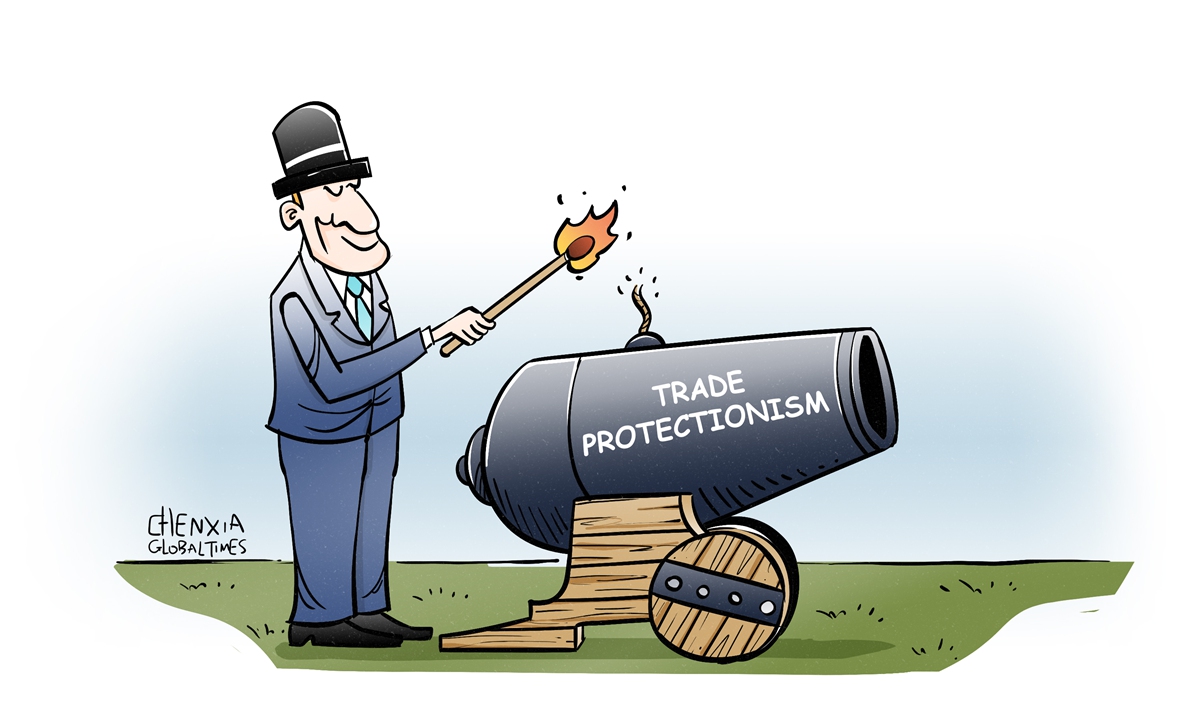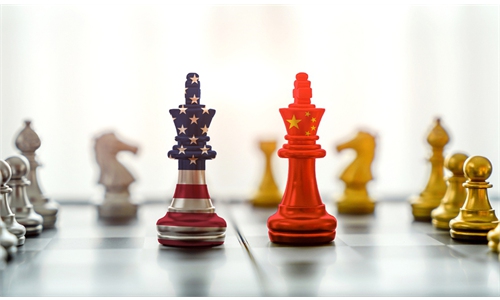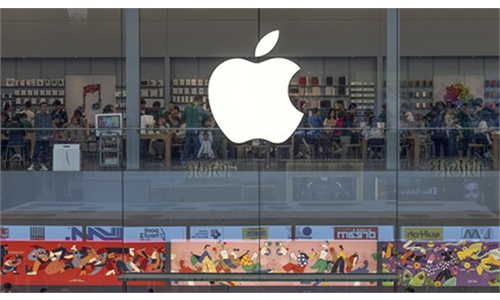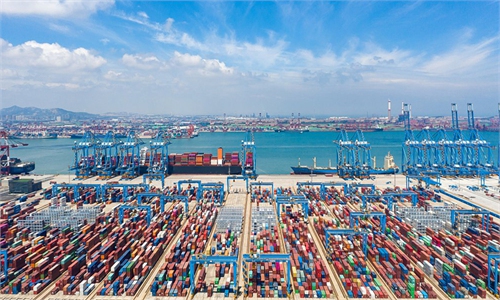
Illustration: Chen Xia/Global Times
In an article entitled "China exports deflation as home demand for steel and autos low," Japanese media outlet Nikkei Asia said on Tuesday that prices of approximately 70 percent of China's major exports, such as steel and cars, have decreased over the past year.While acknowledging that these lower-priced exports from China can assist other economies in alleviating inflationary pressures, the article claimed that "Chinese companies have chosen to sell excess inventory overseas at reduced prices due to sluggish domestic demand," causing trade friction as price competition intensifies.
In the current highly competitive international market with weak external demand, it is normal for prices to decline. Additionally, recent fluctuations in the yuan's exchange rate will also contribute to the downward adjustment of prices. The attempt to hype the narrative of "deflationary exports from China cause trade friction" is unfounded and driven by ulterior motives.
China's manufacturing industry is in a stage of upgrading and development. Therefore, prices in the international market are sometimes influenced by factors such as exchange rates and market demand. This is not at all the issue of "overcapacity and dumping in overseas markets" that Nikkei Asia suggests.
The Nikkei Asia article mentioned the steel and automotive industries in China. However, it is important to analyze the specific situations of these two industries, as they differ greatly.
With effective measures China took, the issue of overcapacity in the steel industry has improved. Meanwhile, China's automotive industry is undergoing a rapid transformation, with excess capacity in traditional fuel vehicles being accelerated into new-energy vehicle capacity.
China has a clear understanding of the challenges posed by insufficient domestic demand and overcapacity in certain industries, as stated in the just-concluded Central Economic Work Conference. However, with China taking more effective measures, these issues are being addressed. In recent years, China has been able to absorb a significant amount of excess capacity domestically, including in the steel industry.
The logic behind foreign media outlets' exaggerated and groundless hype about the alleged China's "dumping" is incorrect. Overall, the competitiveness of China's manufacturing industry is increasing, especially in high-end manufacturing and emerging industries. It has not yet entered the stage of competing to lower prices.
A new round of foreign media hype about "overcapacity" and "dumping" is targeting China's electric vehicle (EV), solar panel and wind power industries, which is a deliberate move because the market space is so vast that "overcapacity" is unlikely to exist.
In light of recent moves abroad, some countries are particularly concerned about the alleged China's "dumping practices." The EU Commission has even initiated the so-called anti-dumping investigations into Chinese EVs. China should be vigilant as media organizations in these countries are shaping public opinion to support these investigations. This reflects how some countries, after failing to restrict China through blockade measures, are now attempting to limit China through technological means.
This kind of hype is ultimately driven by protectionism. Strictly speaking, as prices are determined by companies, who wouldn't want to sell at a higher price and achieve higher profits? However, when there is weak demand from overseas markets, Chinese exporters need to lower the prices of their products. This indicates that the global economic environment is not optimistic and the demand of the world economy is not strong enough.
When the global economy is still facing significant challenges in recovering from the COVID-19 pandemic and when overall demand remains insufficient, it is important for all parties to recognize the dangers of rising trade protectionism. Increasing tariffs or implementing other trade barriers to hinder normal free trade fails to revitalize domestic businesses and industries, and also increases the costs of global trade, creating obstacles to the global economic recovery.
The past global supply chain crises in various industries have already sounded the alarm against protectionism and "decoupling," which go against the principles of free trade. It is hoped that Western countries, led by the US, can handle the issues of industry competition and cooperation rationally, in order to avoid any further impact of protectionism on the global economic and trade development.
The article was compiled based on an interview with Huo Jianguo, vice chairman of the China Society for World Trade Organization Studies in Beijing. bizopinion@globaltimes.com.cn



